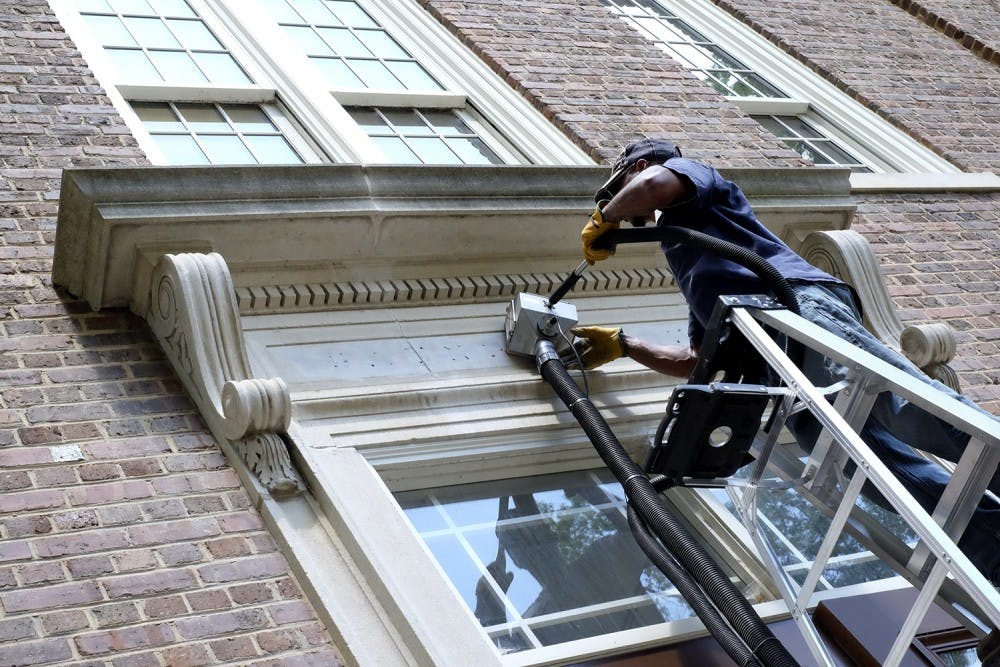Professor William Sturkey looks out at the students in his Race & Memory at UNC class, meeting for the first time just a year after demonstrators pulled down Silent Sam. He sees students who have been involved in activism since their first year or since the ropes were thrown around Silent Sam on that stormy night. Others are learning about UNC’s complex racial history for the first time.
His class is one part of the larger Reckoning: Race, Memory and Reimagining the Public University initiative, spearheaded by the College of Arts and Sciences and introduced this semester.
In an era of rising racial and political tensions on campus, where discourse often takes place on social media, the initiative encourages classroom discussions about the role of race in UNC’s history and how that fits into the larger national and global picture.
“It takes some sort of reckoning to involve talking about truths about the past — to help us heal those wounds and move forward in the future,” Sturkey said. “Ultimately, the big goal is to make sure our children and grandchildren aren’t fighting about a Confederate monument 50 to 60 years from now.”
The timing of the initiative is no coincidence.
Rudi Colloredo-Mansfeld, the senior associate dean for social sciences and global programs in the College of Art & Sciences, said talks about creating it began in January. And this month, interim Chancellor Kevin Guskiewicz announced the upcoming launch of the University’s Commission on History, Race and Reckoning.
Sturkey’s lecture focuses on the 225-year-old history of race at UNC. There are 17 other classes students can take, with disciplines ranging from geography to anthropology.
The classes are split up into two categories: foundational courses, on U.S. and Southern racial politics, and new directions courses, which look at the topics studied through a diverse, comparative lens.
“Foundation courses are a basic story of which we’re clearly a part,” Colloredo-Mansfeld said.




